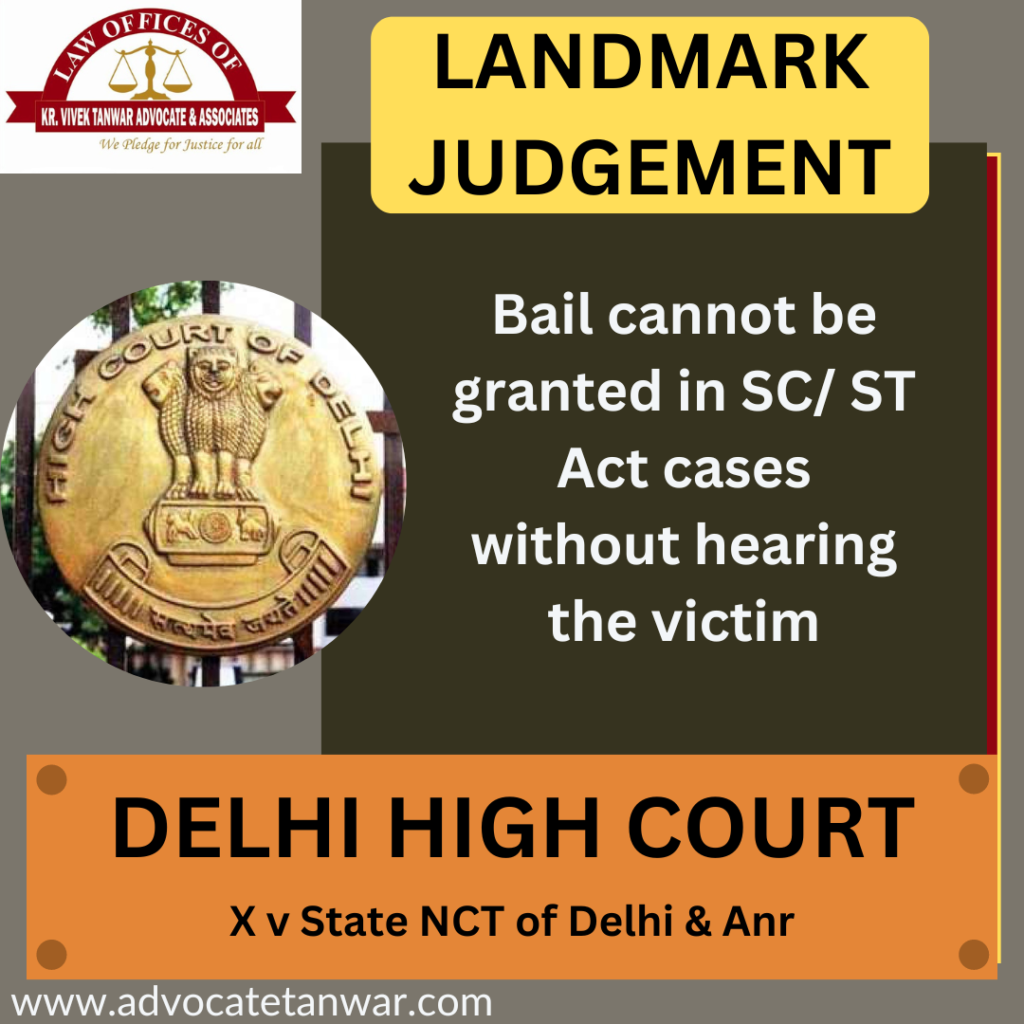Delhi High Court
X v State NCT of Delhi & Anr
In cases filed under the Scheduled Tribes (Prevention of Atrocities) Act, 1989, the Delhi High Court has ruled that bail cannot be granted without first hearing from the victim or complainant.
Justice Navin Chawla stated in a ruling on February 14 that bail that is granted without giving the complainant advance notice is subject to revocation.
“It is evident that granting the victim a hearing in a subsequent procedure, such as one for the cancellation of bail, will not be sufficient to remedy a breach of the mandate of sub-sections (3) and (5) of Section 15A of the SC & ST Act. The Court found that the SC & ST Act’s sub-sections (3) and (5) require compliance and that the only basis for setting aside bail issued in violation of them is that need.
The Court was dealing with a plea filed by the victim challenging the order passed by the trial court granting bail to an accused booked under Section 376 (rape), 354B (disrobing woman to be naked in public), 506 (criminal intimidation) of the Indian Penal Code (IPC).
Sections 3(1)(w)(i) (sexually touching woman of SC/ST community) and 3(2)(v) (disrespecting a person of SC/ST community who is held in high esteem) of SC & ST Act were also invoked against the accused.

It was the complainant’s case that the order was passed without service of notice to her.
After reviewing the case, the Court concluded that the order had been issued without providing the victim with notice or a hearing.
“The learned special judge’s file has the bail application submitted by respondent no. 2 returned to it. The accused victim, the appellant herein, shall have a hearing before the learned special judge to consider the same, the court ordered.
The accused will be released from custody for 15 days, subject to special judge orders on their application.
Adv. Khanak Sharma

